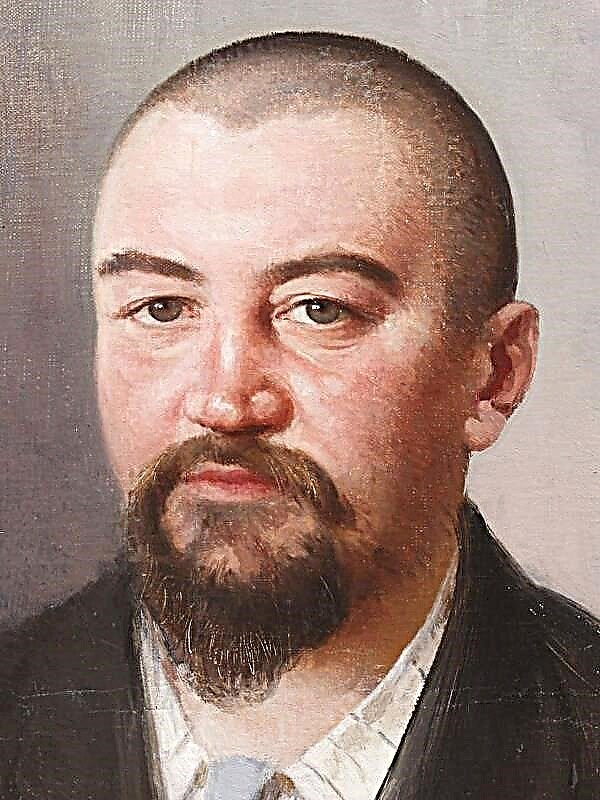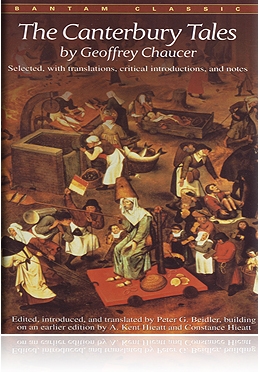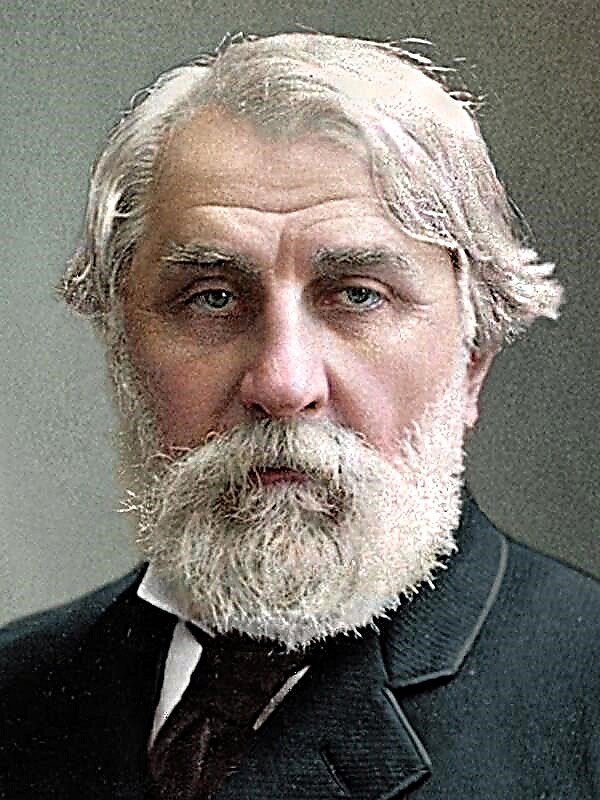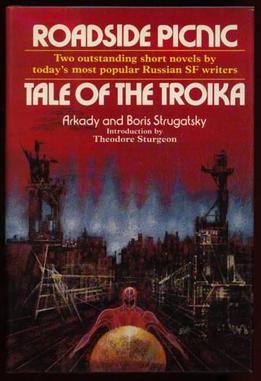We have described the 5 most popular problems associated with the theme of love for writing on the exam in the Russian language. All of them are in the content. Each of them is accompanied by three arguments from the domestic literature of the school course. You can download the table with examples by the link at the end of the article.
The role of love in human life
- Love plays an important role in human life, and Karamzin perfectly proves this idea in his sentimental novel "Poor Lisa". The main character of the work answers the feelings of the young nobleman Erast and can no longer imagine life without a loved one. However, the heroes have to part, since Erast needs to go camping together with the regiment. A few months later, Lisa meets her lover and finds out that he is engaged to a rich widow. This girl can not stand it, because the feelings for poor Lisa are above other values. The story ends rather sadly: never having reconciled with the loss of love, the girl rushes into the water.
- It seems to some that love is not the main thing in life, therefore they ignore feelings. It is this position that we observe in the main character of the novel Turgenev "Fathers and Sons" Evgenia Bazarova. Eugene is a nihilist, that is, a person who does not give preference to authoritative values and does not bow to them. For him, the main thing is science and medicine. However, no matter how he defends his innocence, in the life of even such a controversial character love occurs. Communicating with Anna Odintsova, Bazarov discovers romance in himself. For a person, love is of great importance, so even the nihilist Bazarov cannot avoid its influence on his behavior. Because of his neglect of emotions, he could not stand the test of love and died in the color of years.
- Love brings both joy and misery, inspires and breaks the heart. Dostoevsky writes about this unearthly and contradictory feeling and about what role it plays in people's lives. "White Nights". The main character, a dreamer, falls in love with a young girl Nastya, who is waiting for the return of her lover, which should already take place. And without receiving news from him, the girl responds to the feelings of the protagonist. However, having met the expected man, Nastya abandons the dreamer. The main character, reading a letter of apology to Nastya, forgives her and understands that meeting with her is the most striking thing that was in his life.
Fidelity and betrayal in love
- True love is difficult to do without fidelity, although in life there are so unpredictable situations that sometimes these concepts do not complement each other at all. Let us turn to the novel in the poems of Pushkin "Eugene Onegin". In her youth, Tatyana Larina fell in love with the protagonist and admitted her feelings in a letter, to which Onegin gently answered the girl with a refusal. However, after a while, tender feelings awoke in Eugene, but at that time she was already a married lady. Despite the never-ending feelings for a long-time acquaintance, Tatyana remained faithful to her husband.
- In the play of Ostrovsky "Storm" the main character Katerina lives hard in the family circle, especially because of the reproaches of her mother-in-law Kabanikh. When a girl meets Boris, she, although she is experiencing the torment of conscience, still goes on dates with him. After a while, she still decides to confess to her returning husband Tikhon in treason, after which she is expelled from the house. The girl remains an outcast and Boris, therefore, throws herself into the water. Tikhon, despite his mother’s reproaches, understood that he only felt tender feelings for his guilty wife: he felt sorry for her, so he even forgives her for treason. When he says goodbye to his wife, holding her body in his arms and finally rebuffs his mother, the reader understands how sincerely he loved Katerina.
- In the epic novel "War and Peace" Tolstoy shows the reader an example of his own heroes, which, unfortunately, loyalty does not matter to everyone. Recall the marriage of Pierre Bezukhov and Helen Kuragina: love was not there, Helen married Pierre, learning that he was a wealthy heir. The man also did not feel reciprocal feelings for his wife, but remained faithful to her to the end, which cannot be said about heroin. Marriage did not play an important role for her, so Ms. Bezukhova ignored her status as a married lady. Perhaps, for the faithfulness of even the unloved Helen, fate awarded Pierre a happy family with Natasha Rostova, in which there was no question of treason.
Selflessness in the name of feeling
- Love often places obstacles for people and gets them with great difficulty. In his novel "Master and Margarita" Mikhail Bulgakov argues that for the sake of a loved one, sometimes many have to sacrifice. Once separated from the Master, Margarita is not going to give up and live without him. For the sake of her beloved, she takes the magic cream from Azazello, turning into a witch. She also selflessly gives her soul to Woland, becoming the queen at his ball. What does the girl not do for the sake of her lover and his manuscript significant for them to return! It is thanks to the dedication of Margarita that the heroes reunite.
- Selflessness in the name of love is a quality inherent not only to knights and warriors, but also to more modern characters. Turning to the Goncharov novel "Oblomov", willy-nilly, you note the character of the lazy protagonist. Ilya Ilyich does not want to make a career and conquer generally accepted peaks. Nothing seems to be able to lift him off the couch. However, Stolz introduces a friend to Olga Ilyinskaya, and for her sake Oblomov changes his lifestyle. He moves to the country to follow her, offers Olga to become his wife and receives consent. Although he surrenders further and returns to the sofa, for his beloved, he nevertheless tried to change himself and his life.
- When you love a person, you want to make him happy - that is why you have to be selfless from time to time. We turn to the story of Alexander Kuprin "Garnet bracelet". The protagonist George Zheltkov for many years was in love with Princess Vera Nikolaevna. Several times a year he wrote letters, tried to call her, and Vera told him that without him she would have been calmer. Deciding not to disturb the beloved anymore, but also not imagining life without her, the hero decides to shoot himself. George sacrificed his life for his beloved, and Vera was not so selfless, realizing too late that she had missed true love.
Jealousy: Pros and Cons
- Often love cannot do without a feeling of jealousy, and many literary characters, like real people, experience negative emotions in relation to others because of attachment to a loved one. In the comedy of Griboedov “Woe from Wit” Alexander Andreevich Chatsky returns to Moscow and visits the house of Famusov. He meets with Sophia, who already prefers Molchalin to him. Of course, this situation is unpleasant for him, besides Molchalin does not cause approval from Chatsky. He deceives Sophia, trying to win Lisa's attention, and when this is discovered, Sophia, like the main character, feels hostility and jealousy. However, this feeling is the only real spark of life in the swamp of hypocrisy and pretense of secular salons. It, as we see, is inherent in a sincere person like Chatsky, but completely alien to all the inhabitants of Moscow society. Having experienced heartache, Sophia also transforms, because she receives an important lesson in life. Thus, jealousy is not always bad; often it testifies to a deep nature and true love.
- Love is often the cause of quarrels, misunderstandings, wars, and most often jealousy indulges these frustrations. I recall a novel in verses by Alexander Pushkin "Eugene Onegin". After explaining with Tatyana, the hero absolutely did not want to be in the name day, and he seriously got angry at his friend Vladimir Lensky for not taking his wishes into account. Eugene began to care for Olga Larina, which, of course, did not suit the young poet at all. Lensky challenges Onegin to a duel in which he died himself. Because of jealousy, everyone found only misfortunes: Eugene became the cause of the death of a friend, and Olga lost her lover, and Vladimir himself died.
- Often the strange behavior of the characters is explained either by love or jealousy. In the novel "Hero of our time" Mikhail Lermontov shows the reader that jealousy does not lead to anything good. As we recall, Pechorin had a special relationship with Vera; he loved this fragile blond lady. Vera is a married woman, and this thought was very disagreeable to Gregory. The heroine herself had a similar feeling when she was indignant about the communication of Pechorin with Mary, although she understood that it was not so serious for him. Jealousy did not bring lovers together, but, on the contrary, only alienated them and separated them forever. Faith in a fit of melancholy told her husband everything, and he took her away from the unlucky gentleman.
The resurrecting power of feeling
- Love and kindness to people can help a person to get out of difficult situations and understand himself. So, the heroine of the novel Fedor Dostoevsky "Crime and Punishment", Sonya Marmeladova was able to save Raskolnikov from the terrible consequences associated with pondering the crime he committed. Rodion almost went crazy, analyzing the outcome of his theory of ordinary and extraordinary people, and only thanks to Sonya's responsiveness and love could he emotionally escape from himself. The girl supported the hero, encouraged to repent, directing him on the path of moral resurrection. It was thanks to her support that Raskolnikov dealt with his thoughts and fear.
- In Bulgakov's novel "Master and Margarita" love becomes one of the main stimuli of life. Moreover, it is this bright feeling that saves the heroes from despair and fills their existence with happiness. Upon arrival in Moscow, Woland discovers that many residents are puzzled by the "housing problem", and although the Master and Margarita no less need money, the main thing for them is not material, but spiritual superiority. For the sake of their feelings, they overcome obstacles, if only to reunite and not part. Their love also became a resurrecting force that forever united the heroes.
- Love influences a person in many ways, and even can turn youthful maximalism into prudence and mercantile spirit. In the novel by Goncharov "Ordinary story" the main character, Alexander Aduev, expected that his life would be completely different: a meeting with Nadia and falling in love with her gave Alexander new hopes and bright dreams. Perhaps if Nadia were not carried away by Count Novinsky and did not break Alexander’s heart, love would become for him a kind of resurrecting symbol. However, the plot develops differently, and the transformation of the hero begins with disappointment in a bright feeling. Sometimes love can save a person, but, unfortunately, it happens that it only destroys the ideal idea of life.



 Another light
Another light







